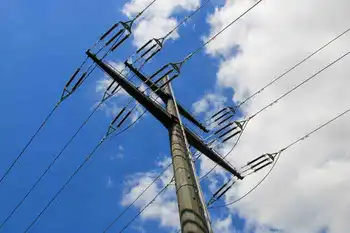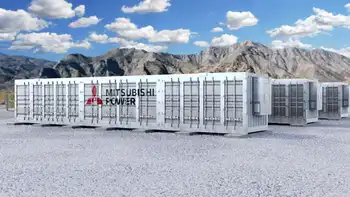Ontario Minister Vows Quick Hydro Sale
TORONTO -- - The Minister of Energy in Ontario wants Crown-owned utility Ontario Power Generation Inc. to pursue an aggressive asset sale strategy because it is urgent the province promote competition in its $10-billion electricity market.
"I want to see an aggressive plan to decontrol," John Baird said yesterday at a Toronto Board of Trade breakfast. "We need a more specific timetable that sends out a clear message to investors and consumers alike. We all know the destination -- it's time to map out the route that will get us there."
OPG, which controls about 75 per cent of the power production market, is required under the rules governing Ontario's restructured electricity sector to reduce its market share to 35 per cent by May, 2012.
However, Baird, appointed Energy Minister two months ago, told the audience that target is "too vague."
"You have my word that I will hold OPG's feet to the fire to ensure that we demonstrate our commitment to decontrol," he told the Bay Street crowd. "It's absolutely essential in a competitive market, because we can't afford to have one player dominate. You know that and I know that, too." According to advocates of electricity restructuring, competition among producers drives down the price of power.
But critics and industry observers say Ontario has failed to generate competition in its electricity market because the province continues to own the two big players, OPG and Hydro One Inc.; the government, under Premier Ernie Eves, has showed a penchant to intervene, such as cancelling the sale of Hydro One and ordering a review of the regulator, the Ontario Energy Board; and uncertainty over when, and if, the Pickering nuclear operation resumes operation.
Baird acknowledged that Pickering, which was supposed to be up and running as early as 2001, is a problem.
"It is behind schedule and costs have escalated -- but it is commercially viable and environmentally friendly," he said. "Nevertheless, I am not happy with the progress to date. As a shareholder, I am asking the tough questions and demanding answers. I am also aware that investors need more than a timetable -- they need confidence that the project is being well managed." He added he had "full confidence" in OPG chief executive, Ron Osborne, and the rest of the utility's management team.
Pickering, which can produce enough power for two million households if all units are operating, has faced myriad delays and is likely to miss its latest target date of late this year or early next.
Industry sources say the target date for the first Pickering unit to come onboard has been pushed back to the second quarter of 2003. Mr. Baird said OPG will address Pickering's timetable when the utility releases its third-quarter earnings, due in the next few days.
A recent report from Ontario's Independent Electricity Market Operator suggested the province could face a "serious shortage" of power next summer unless units at the Pickering A and the Bruce nuclear facility return to service. Failure to get those assets on stream could lead to rolling blackouts and sky-high power rates in the province.
In the Ontario Legislature yesterday, Sean Conway, the Opposition Liberal energy critic, said he has also heard rumours of a pending delay at Pickering.
"What I am hearing is deeply troubling and is going to send these already high electricity bills into the stratosphere with enormous political pain for every single one of us in this room," Conway said. "If that is true ... it will have dramatic and negative implications for all electricity consumers in Ontario."
Opinion on Mr. Baird's speech was mixed.
"It was very well received," said one Bay Street insider who did not want to be named. "The speech was extremely thoughtful. He gave us a signal to be cranked up."
However, Tom Adams, executive director of industry watchdog Energy Probe, was less enthusiastic. "The government has no credibility on its promises," he said. "I don't buy it anymore. We've been sold a bill of goods so many times that warm statements are not good enough."
Related News

Climate change: Electrical industry's 'dirty secret' boosts warming
LONDON - Sulphur Hexafluoride (SF6) Emissions drive rising greenhouse gas impacts in electrical switchgear, power grids, and renewables, with extreme global warming potential, long atmospheric lifetime, and leakage risks challenging climate targets and grid decarbonization.
Key Points
SF6 emissions are leaks from electrical switchgear and grids, a high-GWP gas with ~1,000-year lifetime.
✅ 23,500x CO2 global warming potential (GWP)
✅ Leaks from switchgear, breakers, gas-insulated substations
✅ Clean air and vacuum alternatives emerging for MV/HV
Sulphur hexafluoride, or SF6, is widely used in the electrical industry to prevent short circuits and accidents.
But leaks of the little-known gas in…




